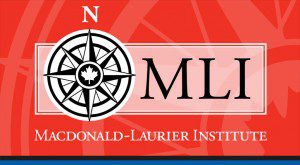 Difficulty in accessing capital continues to hold Aboriginal communities back from the rest of Canada when it comes to economic development opportunities.
Difficulty in accessing capital continues to hold Aboriginal communities back from the rest of Canada when it comes to economic development opportunities.
Harold Calla, a member of the advisory group for MLI’s Aboriginal Canada and the Natural Resources Economy project, writes in the Globe and Mail that a new piece of legislation is just the first step in what needs to be a seismic change.
By Harold Calla, Sept. 17, 2015
The economy has been a dominant issue in this election campaign, but rarely has much consideration been given to the development of First Nations economies.
Instead, politicians aim their economic policies at ordinary, middle-class Canadians.
As an aboriginal Canadian, I will be reminding the candidates that the aspirations of First Nations people are not much different than those of the middle class, and that their well-being is affected by aboriginal interests.
Nowhere is it written in the Constitution or in any other official document that First Nations people must be poor. And yet we know that there is a huge and ever-widening gap between First Nations and the rest of Canadians. The National Aboriginal Economic Development Board reported earlier this year that in 2010, the average income on reserve was $18,586 – less than half of the average for non-aboriginals, at $41,052.
There are the obvious contributors to this growing gap, but the one that is rarely talked about is First Nations’ lack of access to capital, which other communities take for granted. The ability to put capital to work allows other communities to grow and thrive while First Nations are continually left behind.
The recently updated First Nations Fiscal Management Act is designed to help bridge that gap. The act established three institutions that empower First Nations to raise revenues through taxation, build financial capacity and raise capital. It gives those communities that choose to opt in to the act the tools to develop their economies, fund resource development projects and gain access to a pool of capital.
Without fanfare, more than 160 communities have registered to become certified under the act and thus eligible to access long-term loans at rates below prime, and the number of certified First Nations is continuing to grow.
The benefits are enormous because, for the first time, these First Nations communities will be on an equal footing with the rest of Canada and able to access mainstream capital markets, an essential step to developing their economies. The federal and provincial governments have a pivotal role to play in supporting First Nations that choose to take this step. The risk is minimal and can be mitigated by the First Nations Financial Management Board. The reward is real progress that will shatter stereotypes and allow our people to build healthy and prosperous communities.
As Canada’s economy gets back on its feet, there will be renewed opportunities to develop our natural resources in a sustainable way. At the request of participating aboriginal communities, the First Nations Financial Management Board is working with First Nations and the B.C. and federal governments to establish a steering committee to assess these opportunities.
This approach will help First Nations examine the economic and environmental impacts of proposed projects in B.C. in a timely way where several aboriginal communities are involved. It will also provide predictability to governments and industry and, if successful, can become a model for the rest of Canada.
In fairness, during this election campaign there have been some pledges by the party leaders to improve funding on reserve. They deserve to be commended, because increased funding for health care, education and clean water will improve and save lives. But we need to acknowledge the elephant in the room, which is that federal transfer payments on their own will never bring First Nations to a comparable standard of living with Canadians.
We need to break the cycle of dependency and poverty and provide hope and reconciliation to First Nations. In order to do that, all political parties need to embrace the innovative approaches provided by the First Nations Fiscal Management Act that will bring real prosperity to First Nations communities.
Harold Calla is a member of Squamish First Nation and executive chair of the First Nations Financial Management Board.





